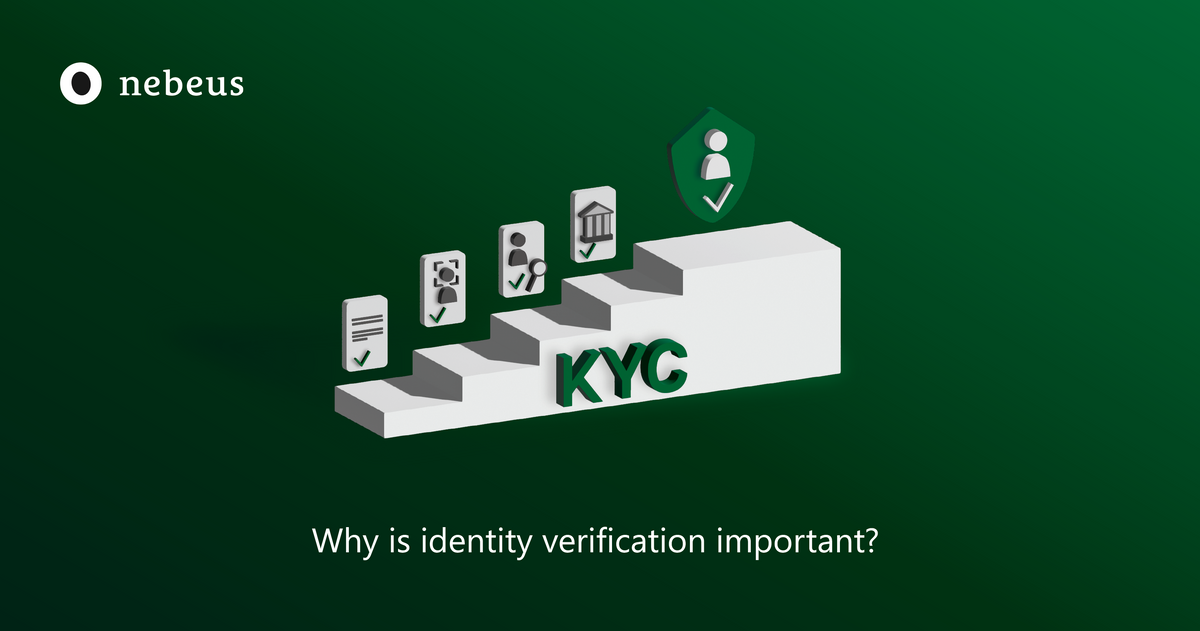The KYC process is a standard procedure banks and financial institutions go through in order to identify and understand clients and organisations they’re doing business with. KYC means Know Your Customer/Client. It is a major element in financial services combating crimes such as fraud, money laundering, corruption, and other illegal activities.
A KYC process is a mandatory method of identifying and verifying clients when opening and maintaining an account or service. It is a process that has been adopted almost globally, as financial institutions ensure that they know their client in full before and while engaging in business with them. These are the steps the client has to follow to successfully complete the KYC verification:
- Documents submission
- Verification (ID verification, Proof of address verification, and Biometric verification)
- Due diligence
Banks can legally refuse to open an account or prevent clients from conducting business if they fail to meet the KYC standards. For instance, if a client can’t provide a permanent resident address, or fails to verify the information of an already open account, forgets their online banking details within an app or online with several attempted verification warnings, the bank can restrict access to the account/service. Or, suppose a client has a history of unfavourable events, like unpaid debts, criminal/fraudulent activity, and even the funding of terrorist organisations. In that case, they can be prevented from obtaining or using these services after the institutions due diligence.
KYC processes involve necessary standard verifying actions, plus other forms of verification through onboarding. A common example is a security answer alongside login details or a unique code sent to whatever medium available attached to a client. As a result, financial institutions ensure customers are real by contrasting information with their recorded details, convening with the appropriate organisations, assessing and monitoring risks associated with doing business with them, and are required to abide by these KYC regulations through legislations placed upon them worldwide. If they don’t, they can face heavy penalties and it can be seriously damaging to their reputation. As a result, the KYC process is an extremely important factor in business relations with an individual client or organisation. In Nebeus, the KYC is easy and fast to complete due to the short and intuitive steps.
The KYC process simplified
Documents Submission
The first step is the Submission Of Documents. The applying client of whatever financial service they are attempting to gain must submit documents to verify their identity, place of residence, and residence status. It includes their name, date of birth, address, and in some countries identification/social security numbers.
It can be done physically, usually bringing a Governmental letter, bill, passport/ID and or drivers licence for an institution to verify - but in recent years many KYC demands can be fulfilled online, via apps, email, with more secure methods such as authenticators, scanning, facial recognition, and passcodes submitted from the institutions to the clients. Organisations must also provide the same basic information, including the names of company directors, company numbers, and their business address.

Verification
The submitted information is then subject to processes of Verification & Due Diligence. It all still needs to be verified through risk assessment, and so does the potential client's financial history. These details can be verified by contacting the organisations attached to these documents and having them confirm the provided information. It is a requirement for any financial institution to determine if you can trust a potential client, and levels of Due Diligence allow them to have insight into a client's history.
Due Diligence
Due Diligence considers the risk attached to potential accounts and services for clients: There is Simplified Due Diligence, where the risk of crime is low considering the value of the accounts. Due to the simplicity of the account, it doesn’t require a full check like more serious forms. This is usually the case for standard individual clients and not businesses that need a more thorough check.
Basic Customer Due Diligence includes the assessment of a potential client and all the risk that may come with working with them. Information on the customer is verified, and checks are run to assess the risks of working with them. Open sources are used to verify businesses, their assets, and investment history.
Lastly, the toughest form of them all, Enhanced Due Diligence, encourages financial institutions to assess potential high-risk clients and their business in its entirety. If a potential client's KYC information breaches the standards set by the institution, they will need additional information to make a decision. This includes assessing risk factors, such as:
- If the country of business has adequate anti-money laundering systems in place
- If a client's business is mainly handled through cash
- If a director or beneficiary is a politically exposed person
Such factors plus many more are constantly assessed and considered in KYC procedures. It allows banks to understand and determine whether or not they want to engage in a relationship with a potential client.
Why is KYC important?
These institutions uphold KYC as a process through the monitoring of accounts. This ongoing process allows them to update requirements if necessary, adapt its KYC approach to fulfil new changes in legislation and movements within criminal activity, and constantly seeks better ways of securing clients, organisation, and themselves as institutions.
The KYC process’ importance rests within covering the movement of global financial systems, which unfortunately will always be subject to criminal and fraudulent activity. KYC procedures ensure that alongside evolving financial systems, our due diligence methodology, our verification of clients and transactions will continually be optimised to achieve the best results.
Sign up for a Nebeus account to buy, hold, and insure your crypto investment.
La inversión en criptoactivos no está regulada, puede no ser adecuada para inversores minoristas y se puede perder la totalidad del monto invertido.










